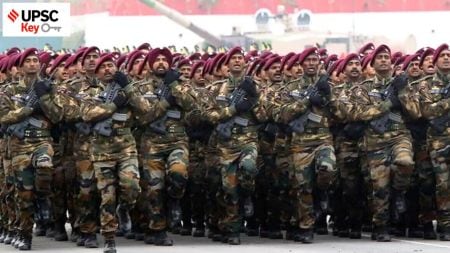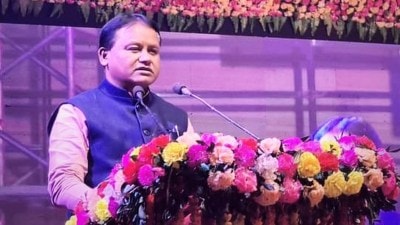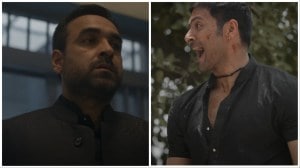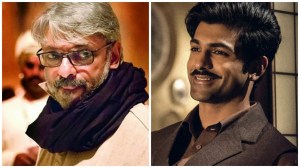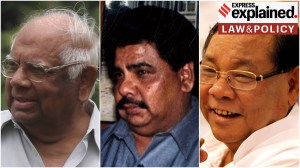- India
- International
Ranga Marthanda movie review: A nuanced, emotional film
The biggest contribution of Ranga Marthanda is the reinvention of Brahmanandam. He is not at all the actor we have seen in over thousand movies. This is Brahmanandam in a never-before-seen avatar.
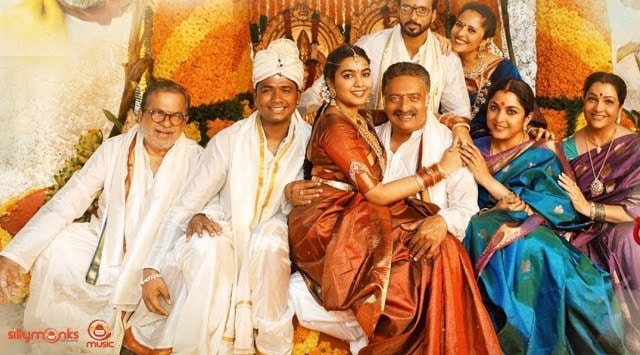 Ranga Marthanda will release in theatres on March 22.
Ranga Marthanda will release in theatres on March 22.Director Krishna Vamsi’s return to films after six long years, Ranga Marthanda is a remake of Mahesh Manjrekar’s award-winning Marathi directorial Natsamrat, starring Nana Patekar and Vikram Gokhale. The Marathi movie itself is based on a stage play of the same name that has been performed since the 1970’s.
Ranga Marthanda is the story of theatre actor Raghava Rao’s (Prakash Raj) life after he retires from acting. Raghava had a great career with many unmatched performances, innumerable awards and finally getting bestowed with the title of the brightest star of the theatre – Ranga Marthanda. The story begins with the felicitation ceremony for the actor on the Kalabharathi stage, the same stage that saw his greatest performances. During the same ceremony, Raghava announces his retirement from acting, and declares his intention to spend more time with his family – wife Savithri (Ramya Krishna), son Ranga Rao (Adarsh Balakrishnan), daughter Shree (Shivathmika Rajashekhar), and daughter =-in-law (Anasuya Bharadwaj). Later, at home, he reveals that he has already transferred the ownership of his home to his daughter-in-law, as she is set to raise the next generation of his family. He also gives away all his cash deposits etc. to his daughter. When close friend Chakravarthy (Brahmanandam) questions him about not having anything to his name after retirement, Raghava proudly declares that he has full confidence on the upbringing of his children.
What follows due to these major decisions in his and his wife’s lives forms the rest of the story. In the process we see him recalling his major acting performances, telling us what he learned from them, his philosophy of life getting questioned, his existence questioned and doubted. His understanding of life, family, children, fellow human beings undergo major changes. ‘Ranga Marthanda’ Raghava Rao ends up perishing on the same Kalabharathi stage in the climax, declaring that an actor’s life is a “test by fire and spring in a cremation ground.”
The film is beautifully setup by Krishna Vamsi with a grand poetic monologue on all major Telugu actors during the opening credits of the movie. Another card which reads, “This is the story of our mother and father,” follows, declaring the major focus of the movie. The narrative takes inspiration from Telugu theatre and films to explain many situations, helping us understand the viewpoint of the lead character in those situations. After a disagreement with the daughter-in-law, the parents are forced to leave the house to go and live with their daughter. Raghava Rao likens the episode with the ending of an ‘Act’ in a play, and declares his eagerness to proceed to the next ‘Act’. After another major upheaval in their lives at the daughter’s house, he says, “This Act is also finished with enough drama and emotions.” During his final monologue on the burnt-out stage, he curses all the writers and directors of theatre, “They wrote all these characters and scenes just to satisfy their creative itch. We performed them with specific instructions to great effect, winning thunderous claps, shower of flowers etc, and took it as our own greatness. All those characters, their emotions are flying around my head, overwhelming me.” He finally declares that the life of an actor is “a test of fire and spring in a cremation ground,” and breathes his last.
The film ends with another appeal to care for our parents. What remains obscure is if the lead character has a better understanding of life due to his unique experience of playing so many characters on stage, or if such experience has dulled his receptivity of the difficulties in his own life. In either case, Raghava Rao losing his mind in the end is perplexing. Is this the story of an actor who aced myriad characters on stage but failed to tackle difficulties in real life? Or is this the story of a mother and father who have grown old and whose ‘use by date’ has come? The link between the story of the actor and old parents somehow stays separate and do not add deeper dimensions to the narrative.

The biggest contribution of Ranga Marthanda is the reinvention of Brahmanandam. The actor plays a goofy, sarcastic, sharp-tongued friend who offers commentary to the story’s events. But, in a few particular scenes, first when he scolds Raghava Rao’s son and daughter-in-law in their office; second, when Raghava Rao comes to visit him after his wife’s death; and third, in the hospital sequence where the friends reenact one of their old acting duals before he finally asks Raghava Rao for euthanasia – Brahmanandam’s performance crosses all expectations. His dialogue flows seamlessly, and his eyes evoke energy and defeat. He is not at all the actor we have seen in over thousand movies. This is Brahmanandam in a never-before-seen avatar.
Prakash Raj has delivered a credible performance as usual. However, his Telugu pronunciation falls short in a few dialogue-heavy scenes. Ramya Krishna, within the defined parameters of her role as the ever supportive wife, has done a great job. Rahul Sipligunj surprises with his effortless screen presence. Shivathmika, Anasuya, Adarsh and Ali Reza are adequate.
Ilaiyaraaja’s music elevates the film greatly. His voice in the background sets the tone and carries forward the spirit of the MOVIE throughout. Akella Shivaprasad’s dialogues have great depth. Scenes on Telugu language, drama, Brahmanandam’s final scene, and the climax will remain with viewers for a longtime.
Though a nuanced, ruminating, emotional film, the success of Ranga Marthanda depends on how it attracts young theatrical viewers.
Jun 11: Latest News
- 01
- 02
- 03
- 04
- 05




